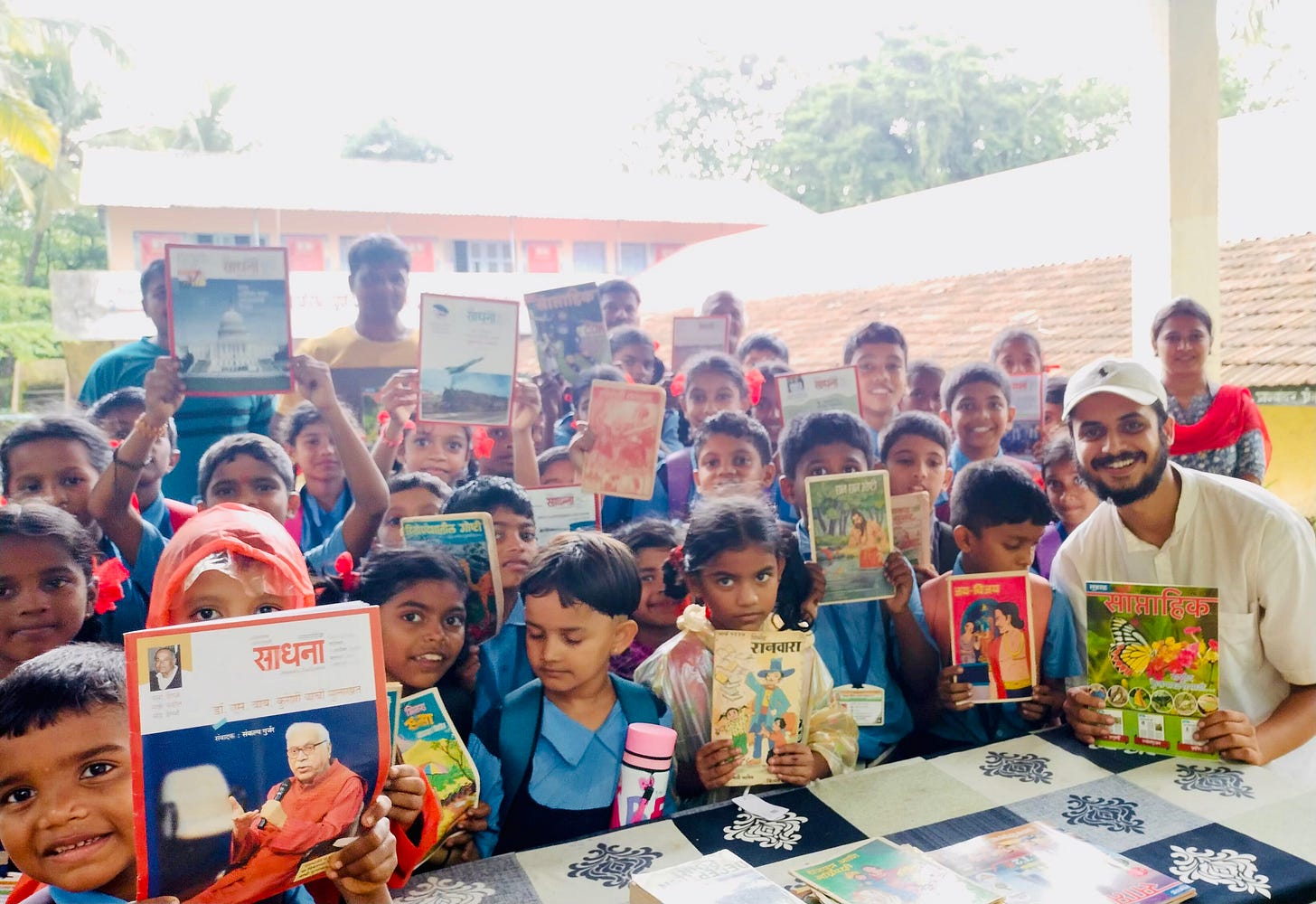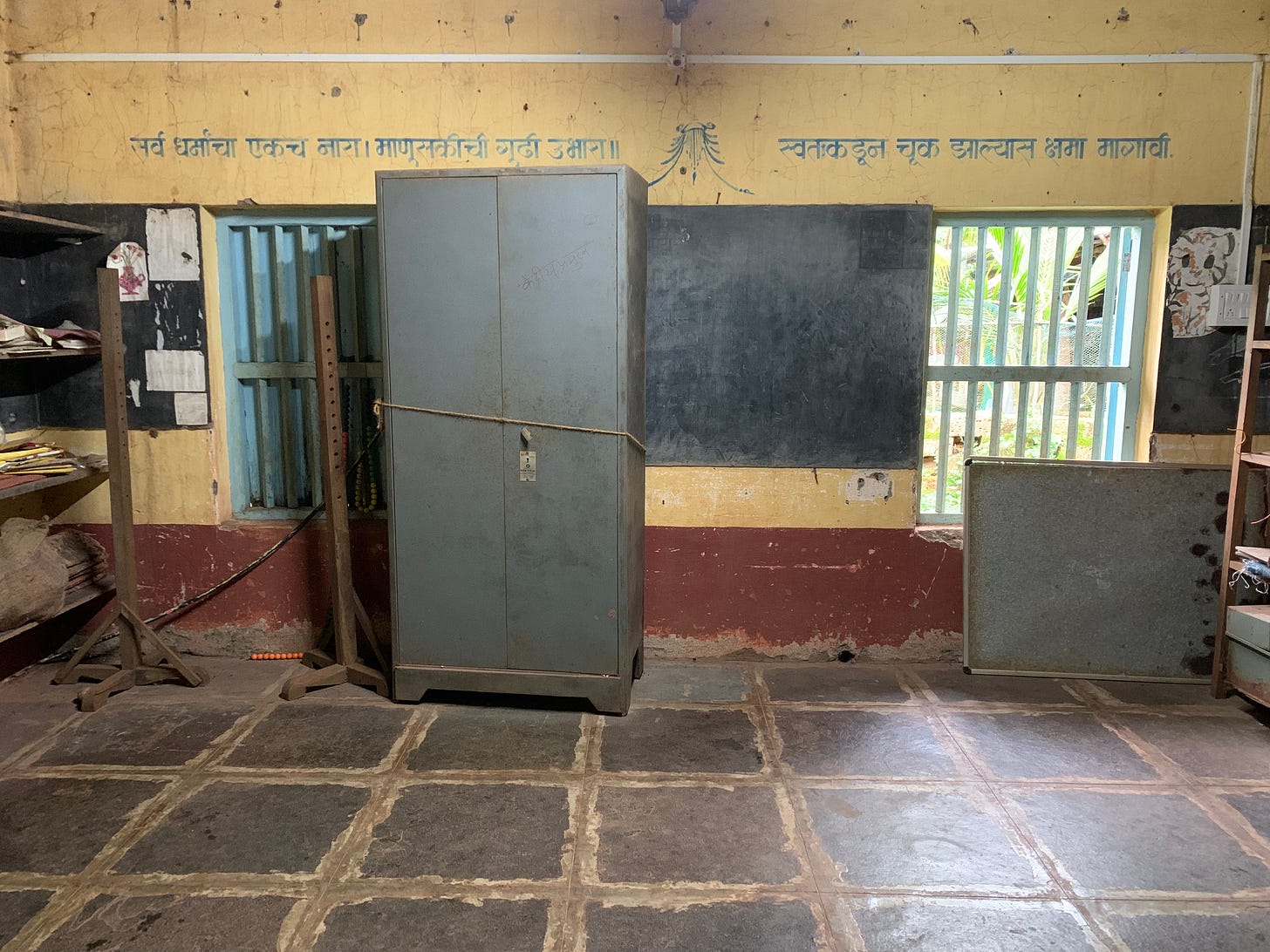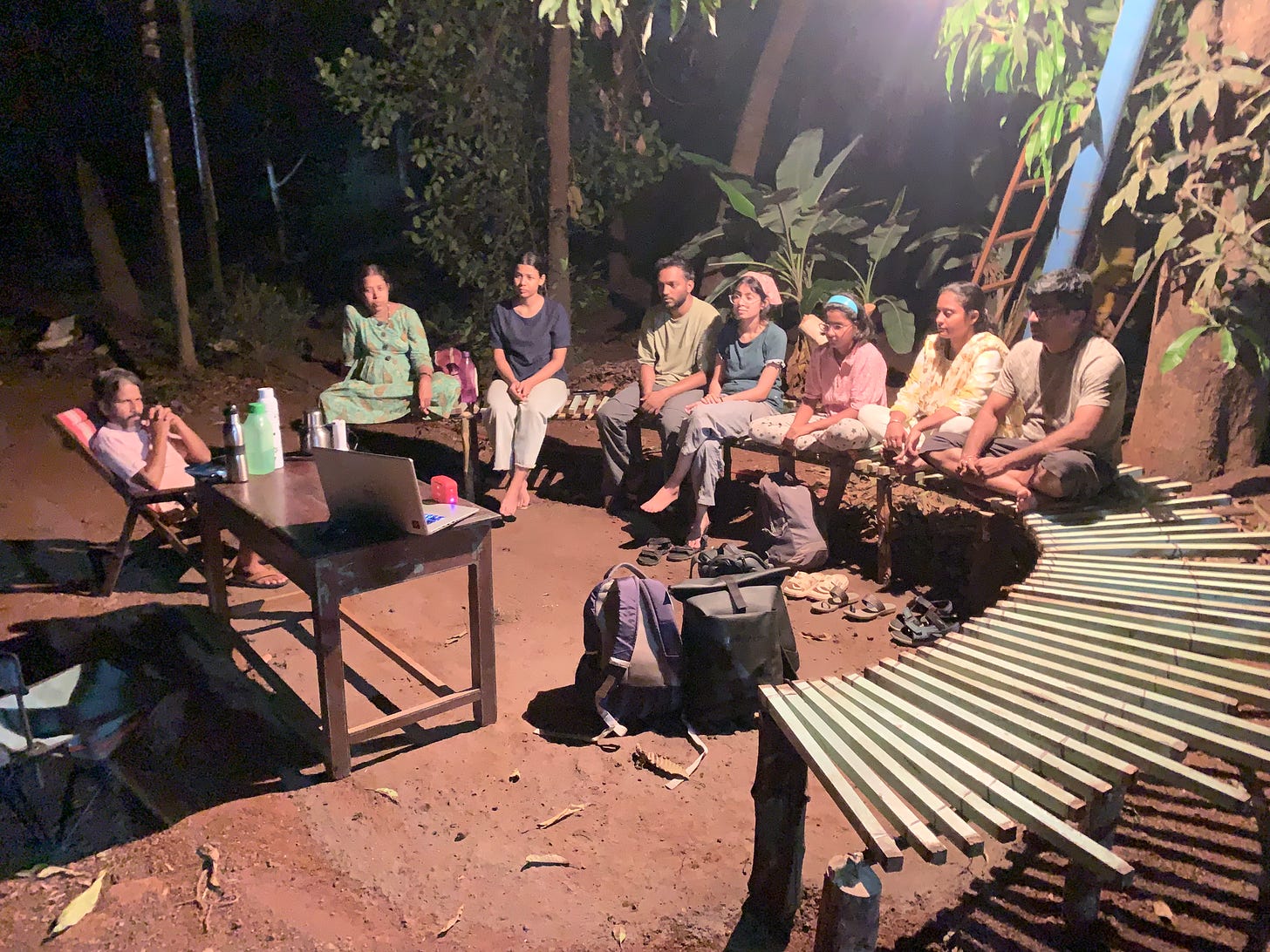We launched the Earth, Agriculture and School library at our rural school
.. towards a bright future
Hi friends, I hope you are doing well. Today I am sharing a good news with all of you. I have been working to build up my rural village. Saving a Village newsletter was started with the same intention. Everything starts with education. And for that we need to have good facilities. Many of you who have been following my work, know about what I do. In the past few weeks I have been concentrating on a thing called Dhara at the bottom of my newsletter. Some of you even went ahead and donated. But what was it for? Here’s the answer…
Today, on the occasion of Krishi Din (Agriculture Day), the "Dhara Krishi va Shaleya Vachanalay" (The Earth, Agriculture, and School Library) was launched at our rural (government-funded/public) Zilla Parishad school in Narvan.
A few months ago, I had written this article: https://www.facebook.com/share/1E9Lg9GreS/?mibextid=wwXIfr
And when I wrote it, many people had extended a helping hand to me. At that time, since I was on a 'padyatra' (a long journey on foot), I was unable to specify what kind of help was needed.
A few months ago, when I came to the village, I met Diwadkar Madam. She had left her life in Mumbai and had come to live in the village. She was voluntarily tutoring the children. In our discussions, the issue that the school lacked proper facilities came up again and again.
Our society has been frequently talking about how Marathi-medium (native language) schools in rural areas are shutting down. I felt it was necessary for me to understand what the definitive solution is and why these schools are truly closing.
I know many read this and press escape, but if you really like what I do, then please go on to support me by donating or buying me a coffee.
It's not that the teachers don't want to teach or that they lack the will. The usual cry is that there's no money to do anything.
A few days ago, I went to the school. Three things struck me sharply. The school has no library, no computers, and no lab to teach science. I consider these to be fundamental needs. To survive in today's world, it is necessary to be literate, have a scientific outlook, and be tech-savvy. Without these things, there is a risk of becoming a slave wherever you go. Anyone can tell you anything; they can tell you to sign anywhere. Therefore, just as teachers are needed for literacy, these basic facilities are also required.
Even if a school has only two children, they are the future citizens of India, and it is crucial that the best possible education reaches them.
While I was discussing this with Amit Gadre (who is the sub-editor of Agrowon - an agriculture based magazine), I mentioned this matter to him. He immediately took it to heart and said, "Let's start a library," and that he would send books and magazines for it. As promised, he sent the books right away.
I immediately told the Madam. The headmaster sir, Madam, and the teachers were all very happy, and taking the opportunity of Krishi Din, we held a small inauguration for the library today. What was special was that even though the headmaster was on leave today, when I suggested we start the library today itself, he allowed this small ceremony to take place in his absence. In a world where we are surrounded by people who insist, "It must happen only in my presence," it's no small thing to find someone who says, "It's for the school, isn't it? Then please, go ahead."
After school was over, the children gathered. Each one was talking to the other, saying, "I will read this," and "I want to read that." All the children's faces lit up upon seeing the books. Some farmers and parents of the children were also present.
This library can become an intellectual hub for farmers and school children, or at least we will try to make it so. To bring farmers together and to bring children together, it was necessary to create a space with books. The hope is that this space grows and the children learn a lot. We also hope that the Agriculture and Education departments will extend their support to this initiative.
The school still lacks many things. Among them, a computer lab, a science lab, CCTV cameras for monitoring, and a screen to make the school digital—all these things are needed. The school's enrollment is around 40. In the coming years, if there are good facilities, this number will surely increase. We hope for your contribution towards all this, and the expectation is that if these things can be achieved here, this model will spread to the surrounding villages as well.
I am indebted to Amit Gadre for his help with this library.
-Ashutosh Joshi
If you have reached this far then I hope it means you like what I’m doing and if so you might consider supporting me by ‘buying me a coffee’ ( Substack does not let me monetize my articles because I am based in India) which is a one off payment rather than a continuous subscription. Payments, however small, encourage me in my writing and mean that I can spend more time honing my skills.
One more thing before you go..
…would you like to help me on the ground?
I have been actively engaged in creating an eco-village. It will be based on the models of agro-tourism, permaculture. The economy generated will help the people living in the village. Many from the younger generation have been leaving the village to the urban centres due to the lack of jobs.
What we did in the past three months is, we started conducting workshops, wherein some got paid for their guide skills, self-help women-led groups got paid for making food to the ones attending the workshop.
In these workshops we shared cultural learnings, we created a safe space for digital detox and we encouraged younger kids to experience nature. This gave a feeling in the village that saving nature can also be an economic model.
Now, as we move further, we will be focusing on education for the school kids, natural building methods to build shelters to accommodate sustainable tourism, and we will be working with the local youngsters to sponsor them and use their skills to create products that could get a market. A website is already underway!
We will need your help in building this project. If you have been witnessing my journey and have been reading this Substack for some while, I’d urge you to spend as little as $10, even that would be a lot of help. You can donate here. (For Indians, you can donate on this UPI id - 8983726737@ybl )
If you wish to donate more I’d hold personal zoom sessions with you to see how can we use your help.
It will help me build this eco-commune faster and the money will be used in getting solar lights and other necessary things to help the local rural community. This is the way you can directly help even when you are sitting oceans away from us.
Thanks, Ash.









